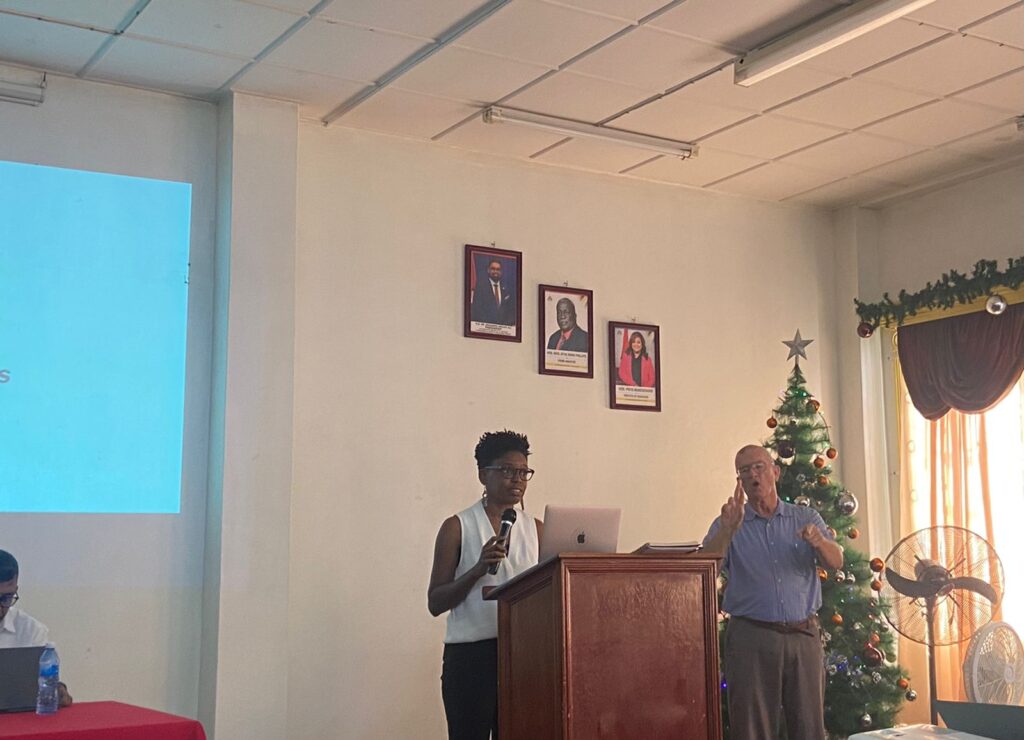
The COVID-19 pandemic negatively impacted the world in various ways and resulted in heightened reports of gender-based violence against women.
And a recent report done in Guyana highlighted the need for essential resources for women living with disabilities.
The unveiling of the community research report titled, ‘Women with Disabilities and Gender-Based Violence in Emergency Situations and Beyond: Lessons from Covid-19,’ was held on Tuesday at the Guyana National Library.
This qualitative study by the York University, The University of the West Indies– St. Augustine, Red Thread Guyana, and the National Commission on Disability, will be presented to the Ministry of Human Services and Social Security and other government agencies as part of lobbying efforts for legislative reform to cater to the needs of persons living with disabilities.
The report delves into the unique experiences of women with disabilities in Guyana, both before and during the challenging period of COVID-19 lockdowns.
It sheds light on the often-overlooked intersectionality of gender and disability, providing insights that can inform policies and interventions.
“One of the things that we realized from speaking to women is that there were a series of experiences, of marginalization and exclusion that how they respond to gender-based violence in the conditions of COVID-19.

“Women spoke of being excluded from education, and working conditions,” Kendra-Ann Pitt, a researcher on the team, said.
Some 30 women participated from Regions 2, 3, 4, 5, 6 and 10. They shared that during the pandemic, they had severe challenges in accessing basic needs. In particular, for persons living with disabilities, they rely on the people around them for support.
Ruth Rodney, another researcher, said 52 recommendations based on the findings, are included in the report.
“What we want to do is really look to create a comprehensive framework for government and CSO services are widely available cross geographical locations in Guyana.
“One of the things we heard from the women is that not only are services centrally located but also if the services were more widely disseminated or decentralised it would address the challenges,” Rodney said.
She added, “It should be in consultation with the disability community to eliminate the stigma and oppressive conditions experienced by the disability community within Guyana in their familial homes, intimate relations and wider society.”

Some of the recommendations include the revision of the Disability Act, the Domestic Violence Act and the Sexual Offences Act to focus on accessibility for diverse women.
According to Rodney, rural communities need to have resources and that migrants and the LGBTQ community should be considered when making interventions to help persons living with disabilities.
In the case of gender-based violence, the study found that women living with disabilities were abused in many forms which includes sexual, physical, emotional. Their medication, devices and money were withheld and they were prevented from socializing during the lockdowns.
The study found that this treatment was meted out to them from loved ones, family members and members of society.
In many cases, the family ignored the situation and neigbours did not intervene. Agencies that offer essential services did not have adequate resources such as interpreters for communication, according to the study.
“We found all of these women were doing so much for their families but they were told so many times that they do not have value that they felt like they weren’t,” Rodney said.
The researchers hope that the recommendations will be implemented by civil society and government agencies.




